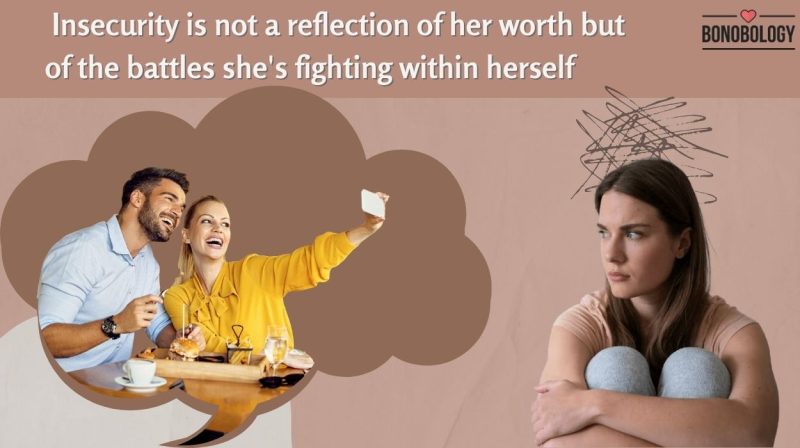Another day, another suicide. Yet another round of discussions and debates over mental health and the need to increase the awareness around these issues. But then, it’s back to square one, until the next incident comes along, shaking us out of our stupor.
This time, it’s the case of a young techie in Bangalore who took his life, allegedly over a bad review of his performance at work. A few weeks ago, it was the case of mass suicide by a family of 11 that shook the nation and once again put the focus on questions regarding mental health, belief, faith et al.
However, despite mental health becoming a major talking point now in the media (at least as compared to earlier), why are the cases and thoughts of suicide increasing? Or did these things always happen but are being reported much more now?
Whatever be the case, the fact is that not much is being done about tackling the demons of the mind. Talking about depression is fine but what are the concrete measures being taken to help people going through them?
Mental Health Issues
Table of Contents
Mental health is an extremely broad perspective now. It does not just mean being in a relatively happy or undisturbed mood. It refers to cognitive, behavioral and emotional well-being. Good mental health is starting to become the goal and is the forefront topic of discussion for many youngsters today.
With depression and anxiety being the most common problems, we ignore the other set of problems that are not always overtly visible to us. Panic disorder, bipolar disorder, schizophrenia and body dysmorphic disorder are some such mental health issues that can negatively impact one’s everyday existence.
The conversation around mental health has allowed many to express their traumas whether they do it anonymously online or seeking professional help in person. But there are far too many hurdles along the way.
Even though access to psychologists has increased and people are more unafraid to discuss their troubles, it is not enough. The world is still grappling with rampant suicide cases and a young generation that needs help and counseling but is unable to ask for it.
Addressing mental health problems
If there is a silver lining in the dark clouds of depression it’s that people are less hesitant to seek help. The long queues outside psychologists’ clinics, the rising number of influencers and celebrities coming out with their own problems and the lengthy discussions each of these episodes spawn indicate that Indians are finally recognizing the need to address mental health issues. We, as a people, are less squeamish about it.

But perhaps, as with every other issue, it’s the sheer volume and number of people going through problems that are staggering. And let’s face it, our medical infrastructure is just not enough to cope with the magnitude.
Related Reading: 5 ways depression affects and destroys relationships
Depression: A silent killer
Depression, overt or covert, is a real problem and it can manifest in many ways. Dealing with depression in a country like India is no joke. The pressures of life in India, especially urban India, these days are immense. Rising costs, bewildering consumerism, a huge disparity between the haves and have-nots, the utter lack of a work-life balance, social media and external pressures have resulted in increased stress and imbalance.
You need to have the proverbial nerves of steel to stay sane amidst the insanity. You may turn to yoga, meditation, alternative healing therapies etc. How effective they prove to be depends entirely on your willingness and sincerity in using them.
Depression is a cumulative result of deeply held beliefs – about self and the world – and treatment cannot be as easy as popping a pill or taking a few deep breaths. It is a long-drawn process that requires a mix of therapy, introspection and medical assistance.
A need to review our belief systems
What is needed perhaps is a huge overhaul of our belief systems – beginning with our attitude towards success and career, love and marriage. Stress is often the root cause of mental health issues and it stems from societal strains and expectations.
For instance, the techie who committed suicide just because he couldn’t perform as well as he would have expected to was perhaps depressed because he couldn’t meet the high standards which had been set by others. He wasn’t probably living for himself, he was striving to meet goals defined by others.

The pressure we put on ourselves and others today is unreal and unfair. These high standards of landing the perfect job or partner are not helping anyone. Everyone takes their own path in life and should be allowed to design life in a way that contributes to their well-being instead of tearing them apart.
The Burari family, on the other hand, was living by strange rules and beliefs they had set for themselves. According to reports, the suicide was a planned effort led by one of the sons who believed his dead father was instructing him to do so. He influenced other members.
Some investigations have also revealed the family members were under the influence of some tantric rituals. Simply put, in this case, deep faith in their twisted beliefs led to deep superstition that clouded any shred of rational thought. Changing these beliefs requires work, a lot of hard work.
Related Reading: 6 Relationship Problems Millennials Bring Up The Most In Therapy
Start young
Wish one could give a one-word or 10-point solution to these grave issues. What can be done, however, is to introduce concepts of mental health early on in schools. Catch them early, begin young. Including chapters in the regular curriculum shouldn’t really be difficult for the government.
There are many benefits of counseling that a young India right now needs. Conduct regular talks in corporates, schools and colleges. Make it as vital as any other subject. Mental health problems are often the result of years of conditioning and ignoring the small signs. Therefore, it’s all the more imperative to create awareness right from childhood.
It also needs to begin with an understanding of the self and how to navigate life in a way that nurtures one’s faculties. Undue pressure, stresses and strains will always exist but one must be able to shun it all and work on themselves.
The path to change has to be multi-pronged, beginning with the way we look at life. The biggest lesson that needs to be drummed is – IT’S OKAY TO LEAD A LIFE OF YOUR OWN! It’s okay if you are not the highest-ranking performer in your office.
It’s okay if the marriage is not up to your expectations. There are always second, third and fourth chances in life. Or better yet, make your own chances for the things that you care about and not what society told you is important.
8 Signs Your Friend Is In Depression and 6 Ways You Can Help
Your contribution does not constitute a charitable donation. It will allow Bonobology to continue bringing you new and up-to-date information in our pursuit of helping anyone in the world to learn how to do anything.























God bless them!! I hope everyone now who is thinking of suicide gets someone to talk to and leave this bad bad idea of coward..